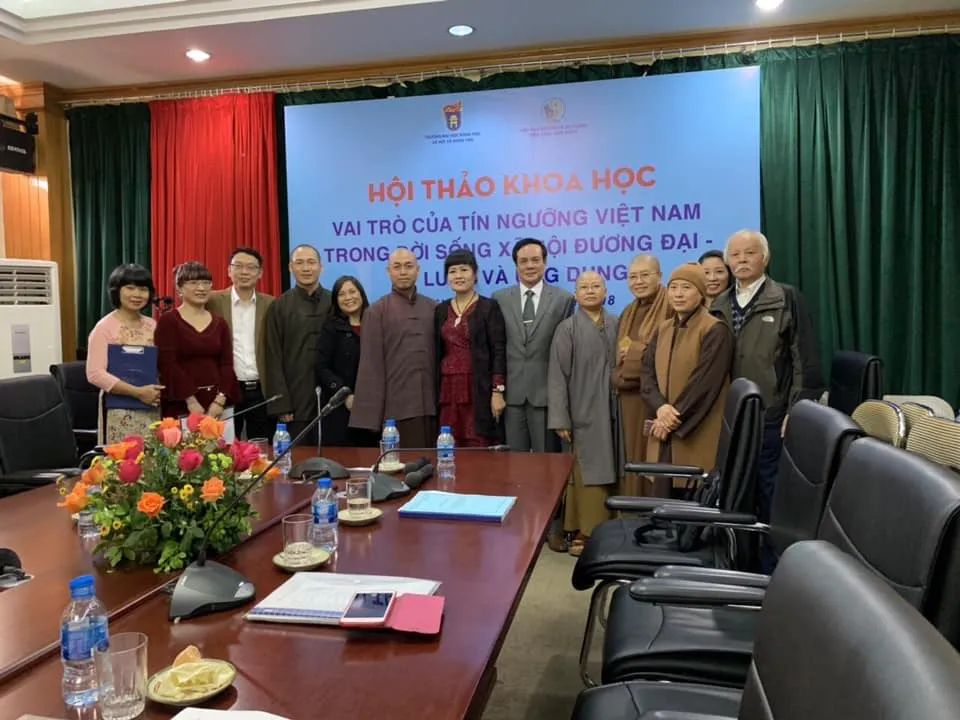Ancestor worship is a traditional cultural practice deeply ingrained in the Vietnamese consciousness for generations. It is not only a custom or tradition but also a moral principle of “gratitude for what has been passed down,” a bridge between generations, and a cornerstone of social values. Where does this belief stem from, what does it signify, and how is it practiced in modern society? This article will offer an in-depth exploration of this sacred tradition.
The Origins and Essence of Ancestor Worship
Ancestor worship is one of the oldest and most widespread folk beliefs in Vietnam. Researchers suggest that this tradition originated in ancient times and evolved based on the following factors:
- The Cognitive Origin: Ancient Vietnamese people believed in animism, the idea that everything has a soul. When a person passes away, their soul continues to exist and can either protect or harm the living. Ancestor worship, therefore, serves to appease and seek blessings from these spirits.
- Economic and Social Origins: The rice-growing agricultural society, which relied on small-scale subsistence farming, fostered strong bonds among family members and clans. Ancestral worship became a way to reinforce these relationships while expressing gratitude towards departed ancestors.
A traditional Vietnamese ancestral altar
- Psychological Roots: Ancestor worship also stems from human feelings of fear, respect, and gratitude toward supernatural forces. Vietnamese people believe that their ancestors can protect and assist their descendants through life’s challenges.
At its core, ancestor worship reflects a longing for a better life, a connection between generations, and a respect for traditional moral values.
The Meaning of Ancestor Worship in Vietnamese Life
Ancestor worship holds profound significance in the spiritual life of the Vietnamese people:
- Expressing Gratitude and “Roots Remembered”: The practice is a way for descendants to express their thanks for the nurturing and upbringing provided by their ancestors.
- Strengthening Family and Clan Relationships: Worshiping ancestors helps family and clan members bond, sharing cultural and traditional values.
- Preserving Moral Values: Ancestor worship serves to remind descendants of ethical standards and admirable ways of life passed down by their forebears.
- Bringing Peace and Fortune: Many believe that proper ancestor worship can bring peace, good fortune, and prosperity to their families.
Ancestor Worship Practices in Modern Society
In modern times, ancestor worship remains an integral tradition in Vietnamese culture, though certain practices have adapted to suit contemporary lifestyles:
- Home Worship: Most Vietnamese families have an ancestral altar where they offer incense and perform rituals during holidays, New Year, or anniversaries. The altar is usually placed in the most sacred space of the house.
- Ancestral Ceremonies (Giỗ): On the death anniversaries of ancestors, families often reunite to hold ceremonies that honor their memories and seek blessings.
- Visiting Graves: During the Thanh Minh festival, descendants clean and maintain the graves of their ancestors as a sign of respect.
- Traditional Festivals: Ancestor worship is also celebrated during major cultural events, such as the Hùng Kings’ Temple Festival and Gióng Festival.
While modern lifestyles have led to some changes, the tradition of ancestor worship continues to be an indispensable part of Vietnamese culture. It not only reminds people of their roots but also inspires them to lead meaningful and virtuous lives.
Ancestor Worship: A Timeless Value
Ancestor worship is an invaluable cultural heritage for the Vietnamese people. In the context of global integration, preserving and fostering this tradition has become even more essential. Ancestor worship is not merely a custom or ritual but also a symbol of patriotism, national pride, and an internal strength for building a prosperous, civilized society.
References
- Đào Duy Anh (1938). Vietnamese Cultural History Synopsis. NXB, Quan Hải Tùng Thư, Huế.
- Phan Kế Bính, 1999. Vietnamese Customs. NXB. Hà Nội.
- Nguyệt Hạ, 2005. Customs of Weddings, Funerals, and Rituals in Vietnam. NXB. Đà Nẵng.
- Bùi Lưu Phi Khanh, 2017. Origins and Nature of Ancestor Worship in Vietnam, Journal of Literature and Arts Issue 401, November 2017.
- Bùi Xuân Mỹ, 2001. Family Rituals among Vietnamese People. NXB. Văn Hóa Thông Tin.
- Đinh Kiều Nga, 2018. Ancestor Worship as Cultural Identity of Vietnamese People. Government Committee for Religion.
- Nguyễn Thị Minh Ngọc, 2017. Changes in Ancestor Worship Practices in Contemporary Vietnamese Society. Institute for Religious Studies.
- Trần Đăng Sinh, Đào Đức Doãn, 2009. Handbook on Religious Studies. NXB. Đại học Sư Phạm.
- Trương Thìn, 2010. Rituals for Ancestor Worship in Temples and Shrines. NXB. Thời Đại.
- Đặng Nghiêm Vạn, 2012. Theories on Religion and the State of Religions in Vietnam. NXB. Chính Trị Quốc Gia.
- Nguyễn Thị Hải Yến, 2015. Origins of Ancestor Worship among Vietnamese People, Journal of Culture and Arts. NXB. Chính Trị Quốc Gia Sự Thật.
